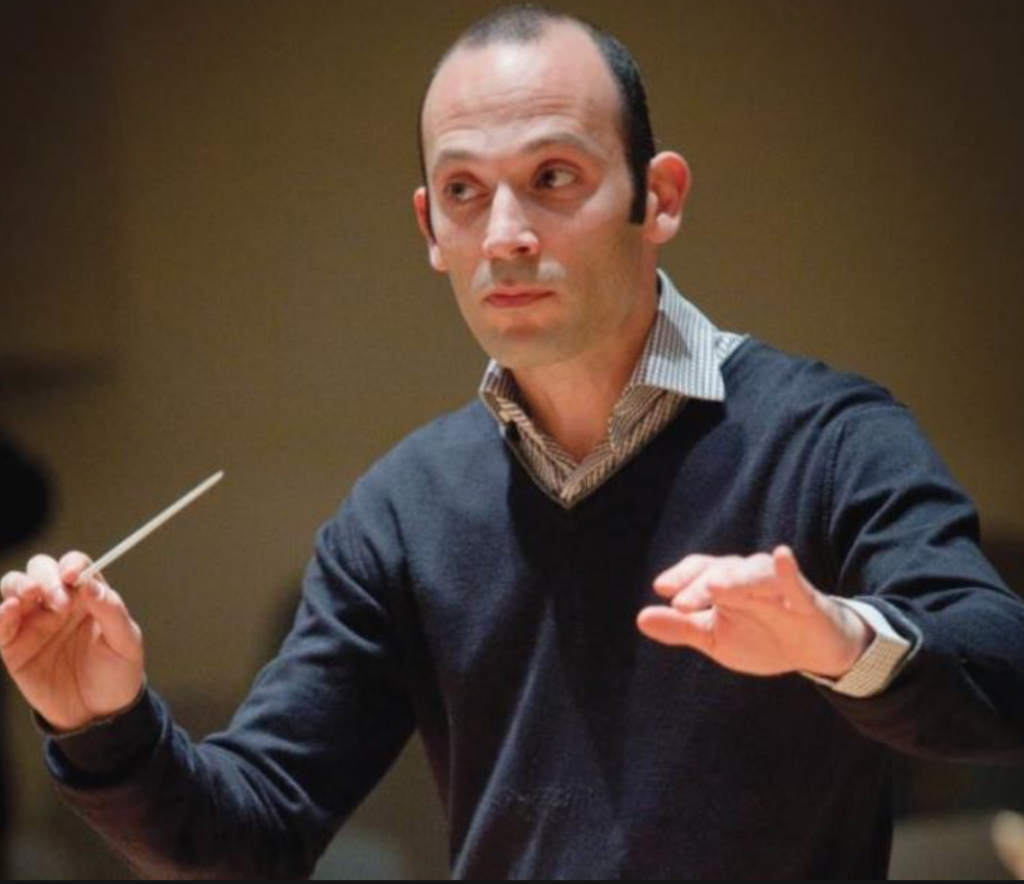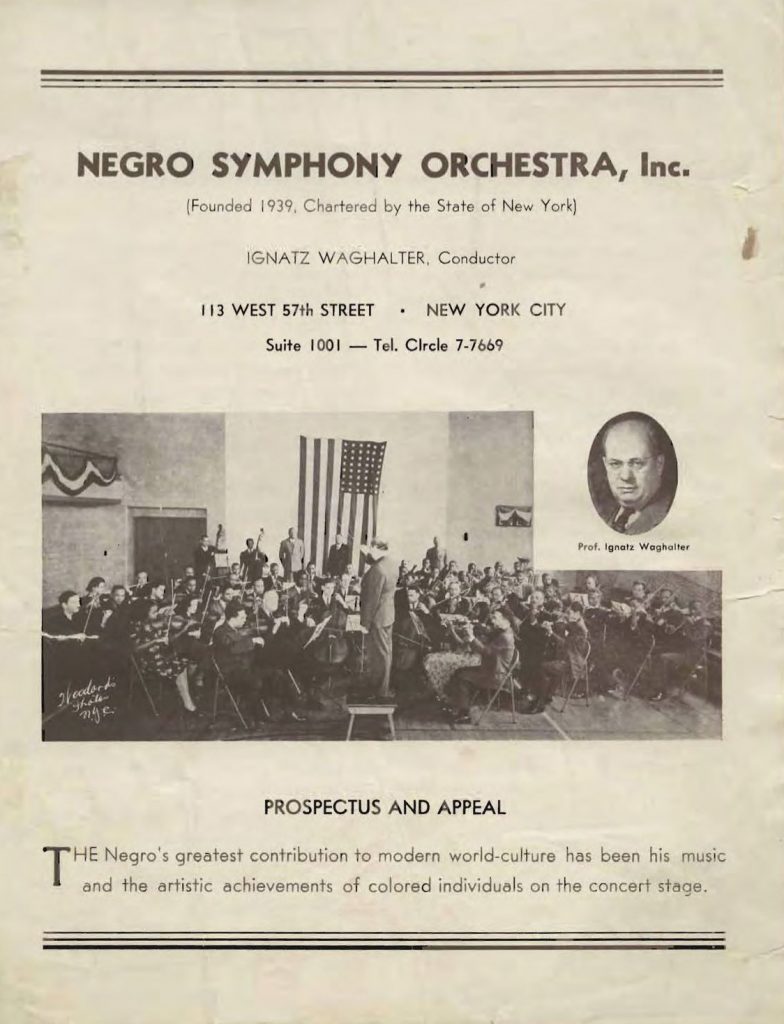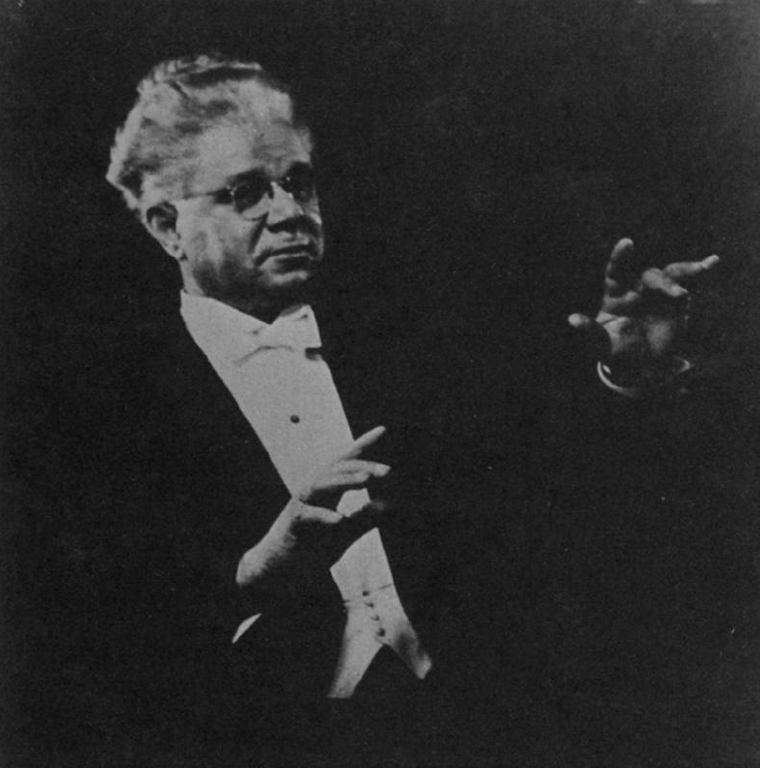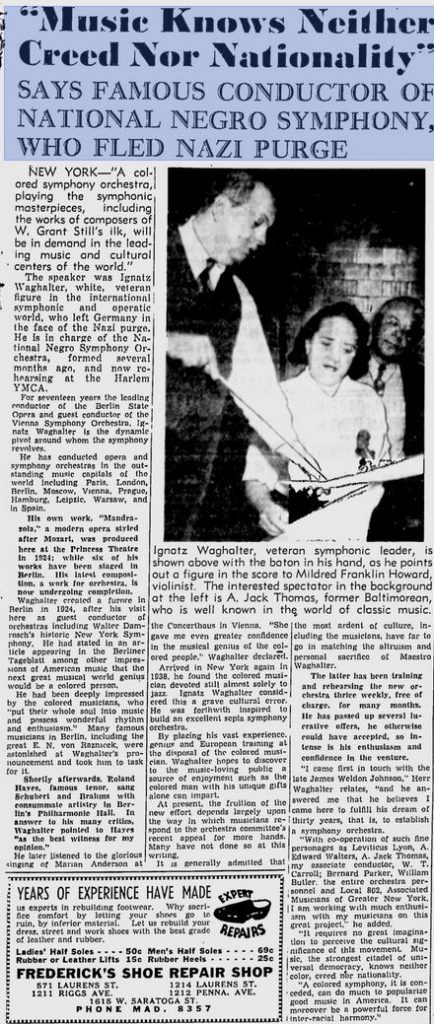Waghalter’s New World Suite to Receive World Premiere with the Filharmonia Poznańska on May 17, 2019
The world premiere performance of Ignatz Waghalter’s New World Suite will be given by Filhamonia Poznańska in Poznań, Poland, on Friday, May 17, 2019. The orchestra will be led by the Israeli-born conductor Ariel Zuckerman. Since 2015 Maestro Zuckermann, who is 46, has been the director and conductor of the Israeli Chamber Orchestra. The concert will also feature a performance of Karol Rathaus’ Concerto for Piano, with soloist Daniel Wnukowski. The entire concert will be recorded and broadcast by DeutschlandFunk Kultur on Tuesday, May 28, at 20:03.

Waghalter composed the Suite in 1938-39, one year after he had fled Europe and arrived in the United States.
Waghalter immediately involved himself in the cultural, social and political life of his new home. A man of intense democratic convictions, Waghalter identified prejudice against African Americans in the United States as another manifestation of the racism that underlay the persecution of European Jewry.
Thus, Waghalter conceived of establishing the American Negro Orchestra as first classical symphony orchestra composed of African-American musicians. In creating such a symphony orchestra, Waghalter wanted to strike a blow against racialist myths, and demonstrate that the heritage of classical music belonged to, and could be performed by, all people.
In a January 1939 interview with the African American Newspaper of Baltimore, Waghalter declared that classical music was the “strongest citadel of universal democracy,” which rejected all forms of racial, religious and nationalist claims of superiority.Waghalter sought and obtained the support of leading figures in the African American cultural community.

James Weldon Johnson, one of the most important representatives of the Harlem Renaissance, wrote to Waghalter: “The realization of such an idea is something I have dreamed of for a number of years … You therefore have my heartiest endorsement of the idea and am ready to do anything that I can to formulate a plan for carrying it out.” Waghalter also consulted with the leading African-American civil rights organization of the day, the NAACP, which recommended a board of directors consisting of such brilliant African-American artists as Roland Hayes, Marian Anderson, Paul Robeson and Duke Ellington.
Waghalter worked tirelessly to recruit both male and female musicians to the orchestra. He appointed Alfred Jack Thomas to the post of associate conductor.
But Waghalter faced immense difficulties. In the midst of the Great Depression, there was little money available for the project. And the racial prejudice was unrelenting. In April 1939, while Waghalter was still at work on the New World Suite, the celebrated African American contralto Marian Anderson was denied permission by the Daughters of the American Revolution to sing at Orchestra Hall, which was controlled by the organization.
Waghalter confronted similar difficulties. He invited the African-American musicians to his New York City apartment for rehearsals. The residents of the building were outraged, and signatures were collected on a petition, demanding that Waghalter be thrown out of the building if he continued to invite African Americans to his apartment. Rehearsal space was eventually secured at the Grant Street Boys Auditorium at 106 West 55th Street in Manhattan.

One performance of the American Negro Orchestra was successfully staged. But lack of funds and political pressures brought the project to an end.
Waghalter had been working on a composition that he had intended to perform with the American Negro Symphony Orchestra. But by the time he completed the work, the orchestra had disbanded. Waghalter placed the 200-page handwritten orchestral partitur in a large envelope, and there it remained for nearly 75 years.
In 2012, the British conductor Alexander Walker — who had already recorded for Naxos Waghalter’s 1905 Rhapsody for Violin and Orchestra and 1911 Concerto for Violin and Orchestra — traveled to the United States to examine manuscripts of Waghalter’s music in the possession of the composer’s grandson. He discovered the envelope containing the handwritten orchestral score of the New World Suite. Recognizing the brilliance of the compositiohn, Walker resolved to record this long-lost work. He reconstructed and prepared the performance score and recorded the Suite, which was released 2015 by Naxos.
Consisting of 10 relatively short movements, the New World Suite exemplifies the inexhaustible melodic imagination of the composer. Waghalter’s Suitespeaks directly to the listener, with a captivating beauty of the type that penetrates and embeds itself in the mind and heart. Moreover, amidst all the difficulties experienced by the composer and the tragedies of his time, there prevails throughout this work a sense of optimism and joy of life.
In Waghalter’s autobiography, Aus dem Ghetto in die Freiheit, written in 1935 after his flight from Germany, the composer pondered his fate:
Destiny has placed before the Jewish people new struggles – as if to demand that they strengthen themselves spiritually and intellectually. And so I as well am forced again onto the path of a difficult struggle for existence. But to where? Perhaps to the land of Israel… or to the eternally young North America? But wherever it may be, I am determined to serve the cause of Art and Mankind, in accordance with the words of Moses, “You were brought out of Egypt to serve your brothers.”
It is this commitment to the cause of human dignity that inspired Waghalter’s creation of the American Negro Symphony Orchestra and his composition of The New World Suite.
To hear a passage from the Suite, click below:

Leave a Reply
You must be logged in to post a comment.